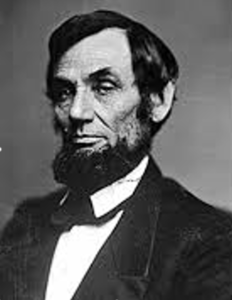Republican (nationalist) President Abraham Lincoln, of the united States, exercises a “pocket” veto (a veto which cannot be overridden because Congress is not in session), by refusing to sign the Wade-Davis Act, which would have imposed a harsh and vindictive policy of assimilation in the Confederate States.
[restored 4/15/2022]
The National (compulsory) Union (Republican) Party nominates President Lincoln’s chosen running mate, war Democrat (constitutionalist) Andrew Johnson, military Governor of Tennessee, against Vice President Hannibal Hamlin (200 – 150). Lincoln’s original choice, Major General Benjamin F. “Spoons” Butler, of the Army of the united States, rejected the offer, saying he would only accept the nomination if the president promised “that within three months after his inauguration he would die.”
NOTE: Johnson was not a legitimate candidate, as he was a Citizen of Tennessee; Tennessee did not consider itself to be a member of the compulsory Union.
[restored 4/15/2022]
Subsequent Events:
Authority:
Article I, Section 7 [Clause 1]
ccc-2point0.com/constitution-for-the-united-states
References:
Lincoln to Congress, Proclamation on the Wade-Davis Bill, Henry Steele Commager, ed., Documents of American History, sixth edition, (New York: Appleton-Century-Crofts, 1958), 1:439
Calvin D. Linton, ed., The Bicentennial Almanac: 200 Years of America, 1776-1976, (Nashville, Tennessee: Thomas Nelson, 1975), 183.
American Civil War, 1864
www.spartacus.schoolnet.co.uk/USAcivilwar5.htm


